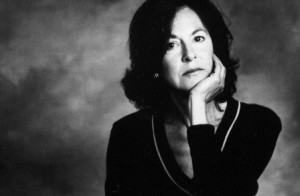To frame a discussion of literary vs genre in marketing terms encourages cynicism, because marketing pretends discourse while designed only to separate you from your money. So let’s forget about how the distinction between literary and genre is used for selling books. What is it really?
A non-marketing definition of literary fiction arises from Louise Gluck’s (pictured) well-known essay, “Against Sincerity.” Click the highlighted link at the top of this post to read it. The essay focuses on poetry but applies to all art, and literary fiction is, in my definition, an art form (or at least it’s attempted art — few succeed but that’s another story).
Gluck defines art as: An actuality that expresses truth via honesty. Three nouns, one verb, one qualifier.
Her definitions of the nouns:
Truth: Illumination of the human condition in the work.
Honesty: Interrogation and expression of the artist’s self via craft.
Actuality: The world as shown by the artistic product.
Her thesis now makes sense: Literary fiction is a view of the world that illuminates the human condition through the artist’s crafted self-expression.
Why is she “against sincerity?” Because self-expression, no matter how sincere, is not enough. You must craft your self-expression so that it illuminates the human condition in a way that creates a world.
Gluck’s article invites and rewards many readings, but it’s dense. A reader-friendly exegisis is… http://www.robertpeak…
My writing goal has been to produce a well-plotted story that reaches beyond genre, to literary fiction. Models are Cormac McCarthy’s No Country For Old Men, and John Le Carre’s A MostWanted Man. Gluck’s ideas clarify my goal.

